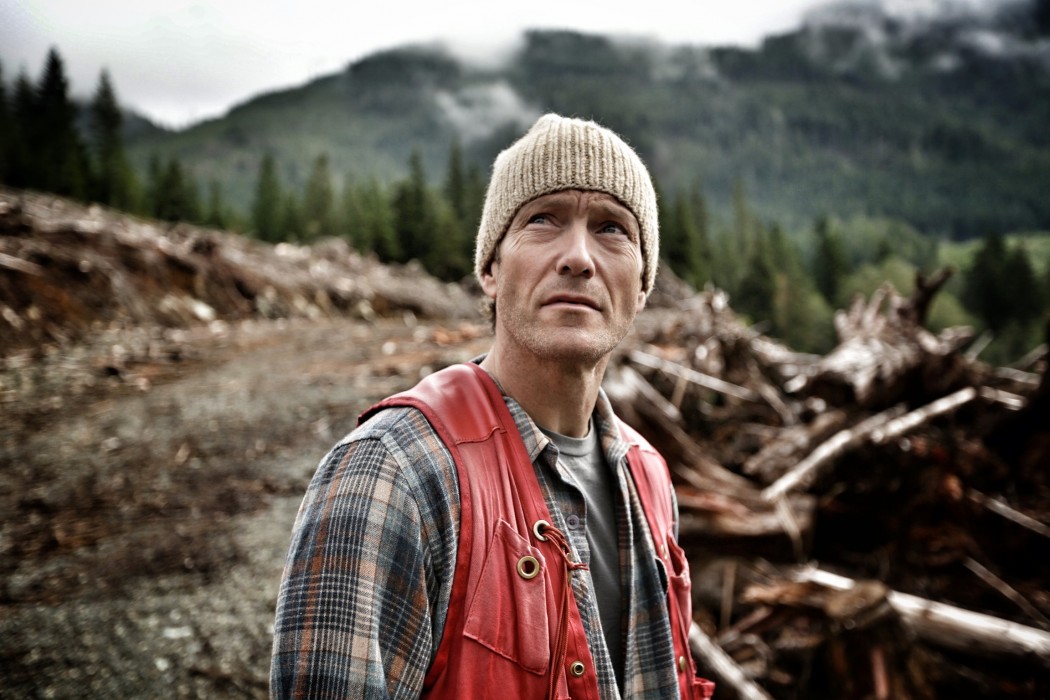Hadwin’s Judgment, directed by Sasha Snow, is a mesmerizing and suspenseful Canadian docudrama that explores the intricacies of the relationship between man and nature. Inspired by the book The Golden Spruce, by John Valliant, the film follows the compelling and mysterious story of Grant Hadwin, a logging engineer on the remote Haida Gwaii islands of British Columbia. Throughout the film, Hadwin grapples with the detrimental effects of the logging industry on BC’s old-growth forests, and is increasingly revolted by his own part in the destruction. In what he feels is revenge for a crime against humanity, Grant makes one perverse decision that changes the face of the forests of Haida Gwaii forever. The film chronicles the events leading up to this act and, through interviews with those who knew him, explores the potential motives behind Hadwin’s irreversible choice.
As the film explores the issue of human-led deforestation on Haida Gwaii, Snow weaves in an extremely moving discussion of the native Haida population. The archipelago’s Aboriginal peoples are unique in their isolation, and many of their cultural practices have remained untouched until recent years. The fantastic forest specimens found on this island are incomparable, and become the focus of logging companies across the globe. Several native Haida residents explain how corporate interests are beginning to intrude on their sacred practices and livelihoods. These indigenous community members discuss the importance to the Haida of living lightly on the earth and explain the equal value that they place on human and environmental subjects. Hadwin’s Judgment discusses the Aboriginal interests as they exist within the region, and highlights the striking contrast between the Haida and corporate environmental world views.
As the camera spans over vast expanses of seemingly untouched nature – immense forests, oceans, mountains and rivers – the viewer is transported to another world; one of the few places left on earth where nature still exists in its purest form.
Perhaps the most memorable aspect of the film, however, is the visually stunning and jaw-dropping cinematography. As the camera spans over vast expanses of seemingly untouched nature – immense forests, oceans, mountains and rivers – the viewer is transported to another world; one of the few places left on earth where nature still exists in its purest form. Snow juxtaposes these images of nature’s beauty with stark shots of forests decimated by human forces.
By employing unique and jarring camera angles, Snow produces an uncomfortable and voyeuristic image of deforestation, forcing viewers to acknowledge their own complicity in the act. He often places the camera on top of industrial chainsaws so that the viewer feels as if they are one with the chainsaw, cutting down each and every tree. The noise of a piercing chainsaw is analogous to the trees “crying” as they fall to their deaths on the moss-covered forest floor. This forced voyeurism makes the audience feel implicated in the deforestation of British Columbia, and engenders sympathy towards affected populations, like the Haida Gwaii.
Throughout the film, Hadwin develops increasingly mystical qualities, becoming a nearly super-human character that can swim in freezing water and climb a mountain faster than any opponent.
Through interviews with environmentalists, villagers, local Aboriginal people and Hadwin’s friends, the film integrates a realistic discussion of deforestation practicalities and atrocities, while simultaneously sustaining an extended analysis of Grant Hadwin himself. This tormented character, who rarely speaks throughout the film, not only provides a platform for the viewer to grapple with the realities of an increasingly anthropocentric world, but also serves as a puzzle for the viewer to dissect. Throughout the film, Hadwin develops increasingly mystical qualities, becoming a nearly super-human character that can swim in freezing water and climb a mountain faster than any opponent. This mystical quality feeds into the picturesque shots of the forest, as it is characterized as a dynamic ecosystem with a wise, omniscient quality.
A riveting story coupled with a powerful and beautifully written score, Hadwin’s Judgement is an excellent docudrama that will appeal to a wide audience and is sure to elicit meaningful discussion in the environmental community and beyond.
Hadwin’s Judgement premiers Monday November 23, 2015 at Cinema du Parc and runs until December 3rd.


